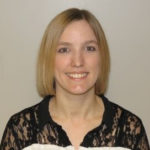By Stephanie McLain, Claims Adjuster
When we first introduced the Echo to my boys, they loved it! They wanted to talk to Alexa all the time. They said Please and Thank you and Good Morning as if she were a new roommate in our house. It was the most precious interaction between tech and child. That slowly changed when Alexa took away their light switch.
The smart lights were a welcomed change because gradually turning on the lights helped my boys wake up happier and more refreshed. However, fully taking control of their lights to the point where there was now a guard on their light switch so that they didn’t accidentally turn it off disabling the functionality, really threw them for a loop.
My oldest son came to me crying confused and said, “I don’t mind change when it’s fun but why can’t we have our light switch? I don’t know why I’m crying but I just like the light switch.”
I grabbed him into a big hug and explained that change is scary and crying is acceptable. Children aren’t the only ones afraid of change. Many adults stay stuck in outdated ways because change is scary. Mind you, I did chastise my husband for making such a drastic change without warning the kids because you should always tell someone before just altering their life. Even if a light switch seems so minuscule that it won’t affect them, it’s a habitual part of life that may be drastically impactful. We ended up giving the boys their Christmas gift of their very own Echo Dot early so that they can control their smart lights with it from their bedroom which negates the need for a light switch and my son is beyond well-adjusted now. They now want to know what else can be controlled with their Echo.
Once you get past the initial shock, it’s amazing what world of opportunity that awaits you. If a child can talk through it and reason his way to understanding, so can an adult. It’s all about getting through those stubborn parts of yourself and finally being open minded. I know being open minded is difficult, but if you try, you’d be surprised. You have to do something 20 times for it to become a habit which means just because it is uncomfortable or unfamiliar the first 19 times doesn’t mean it’s not for you.
 About Stephanie
About Stephanie
Tech enthusiast (not pro), photographer hobbyist, boy mom, animal lover, and Insurance Adjuster
When Stephanie isn’t at work she’s trying new things from food, tech, games, hair colors, etc. Stephanie and her husband of 2 years live with their 2 boys, 1 fostered cousin, 2 dogs, 1 snake, and 1 fostered bearded dragon. Her goals are to experience the best life has to offer. They like to explore as a family everything from the outdoors, new towns, new games, or even new concepts or ideas for the house.
No Endorsement: The products identified above are examples of smart home technology. The information in this article about products is for informational purposes only. MAX Insurance has not purchased or tested and does not endorse, recommend, certify, or approve any product mentioned above. We have no affiliation or relationship with any manufacturer or supplier of any product described in this article. We make no representation or warranty with respect to any such product nor to its quality, reliability, or integrity. We do not vouch for the truthfulness or accuracy of any information from any third-party about its product. If you choose to purchase or use such product, it is at your own risk and you are responsible to use it in accordance with directions from its manufacturer or supplier.
 David Wine
David Wine